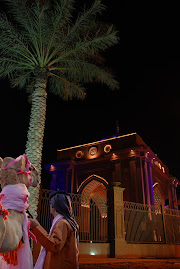
...which may also be the most tragic story that is rarely told in America.
The Greatest Story Rarely Told in America | December 31, 2008 | The National
By Tala Al Ramahi
The last time Israel decided to launch a merciless and aggressive assault on a neighbour – Lebanon – I was completing my final year at Stanford University. It was the first time I had followed such an Israel-related violent outbreak from overseas, but the physical distance from the war did not diminish my obsession with following it as keenly as if I were closer. If anything, the distance only magnified my obsession.
However, as the death toll mounted during that 2006 war, and Israel partook in its own “shock and awe” campaign, I was more shocked and awed by the American news coverage. Watching the 34-day war from afar was like experiencing modern events from a distant universe.
As the Israeli Defence Force launched their indiscriminate bombing campaign, which resulted in the death of more than 1,100 Lebanese – most of whom who were civilians, and a third women and children – I could not have grasped the enormity of the humanitarian catastrophe by relying on US-based sources. I was, however, repeatedly told that Israel, “the only true democracy in the Middle East”, is “defending itself”, “retaliating”, and “responding” to rockets from “terrorists” and “Arab dictatorships” that desperately “wanted to destroy” the Jewish state. Had I not known better, I might have believed them, as do many (if not the vast majority) of Americans.
The issue is even more acute when it comes to the Israeli-Palestinian conflict. Criticism of Israel in the American media, is (as Edward Said called it) “America’s last taboo”. Those who dare criticise Israel’s actions and its moral integrity know that they must deal with the repercussions (and I have had to deal with quite a few while abroad), including right-wing Zionist bullies, hateful racist slurs, and being labelled an “anti-Semite”. The actions taken against academics who openly defend the Palestinian cause are even more pronounced.
And while many American Jews nurture a form of Zionism more fanatical than that held by Israeli Jews, I noticed that the vast majority of non-Jewish Americans were actually either apathetic when it came to this particular issue, or worryingly misinformed.
The extent of such ignorance hit me when I was explaining to my roommate, an American, about my ancestral background. “So why are Palestinians blowing themselves up?” she asked. My knee-jerk reaction was to end the conversation instantly, but her curiosity seemed genuine and not deliberately aimed at aggravating me. I later found out, through endless discussions, that her only window into the conflict began (and ended) with her History class on the Holocaust, and the Jewish population’s desperate need to find “a land without a people for a people without a land”. The historical narrative about an indigenous Palestinian population was absent from her version of history.
She was unaware (as are many Americans) of the Israeli occupation. Nor did she know about the illegal usurping of territory and destruction of Palestinian homes by Israel, let alone the existence of a matrix of checkpoints in the Palestinian territories that make day-to-day movement and life for ordinary Palestinians unbearable.
It is easy to point fingers at American media outlets who have converted neutral Americans into supporters of Israel because of constant biased reporting. Linguistic changes to the narrative of the story, such as using the word “neighbourhood” to replace “Israeli settlements” further exacerbate the situation by allowing such media outlets to distort the truth of what has been called the “hidden occupation”.
Professor Robert Jensen, a journalism professor at the University of Texas, explained in the documentary, Peace, Propaganda and the Promised Land, that “Israel is fighting a war on two fronts. The first is a military campaign in the territories against the Palestinian people, and the second is a PR campaign being waged in the US through American media”.
We Arabs must learn the lessons of that and provide an alternative narrative that is both productive and newsworthy. But we should also examine our own media. Many Arab-based media outlets host commentators – on TV and in print – who, in response to the current circumstances, issue angry, hate-filled diatribes. And while the situation certainly merits anger and grief, if we are to win hearts and minds on the international arena we must publicise and humanise the Palestinian plight. Too often, the Palestinian cause is undermined by angry rhetoric that only relieves some of our own outrage.
We in this part of the world, already know the reality. We do not need to preach to the choir. After all, we have seen the devastating images on our television screens, heard the cries of Palestinian widows, and the Gazan fathers who have lost their children to Israel’s indiscriminate collective punishment campaign.
But if we hope to spread our message beyond the Middle East, we need the cool voice of reason; intellectual activists who can channel their grief into productive rhetoric. We need politicians and academics who will use indisputable facts to narrate the greatest story rarely told in America.


No comments:
Post a Comment